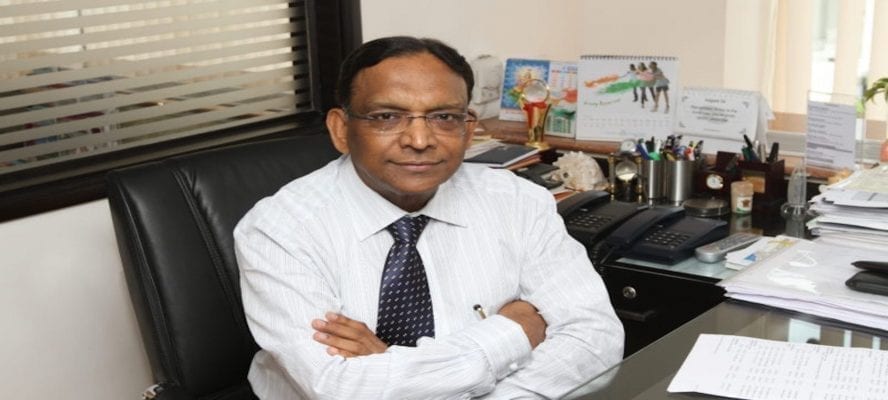Dr Vinay Aggarwal, Past National President, IMA, Member, DMC talks about how doctors need to get back to work to take care of the people they have taken an oath to protect, taking all precautionary measures during the pandemic and joining those healthcare professionals already working on the frontline
Doctors have always been at the forefront of peace and war. The nation still looks towards them whenever a calamity hits it. Doctors are continually battling diseases, death, and providing a soothing touch. Doctors are boosted to a demi-god status whenever a crisis hits humans. It was very encouraging and elating for doctors to be commended by the Prime Minister for their role in the present COVID-19 pandemic and, after that, receiving the blessings of the entire country in the form of an organised celebration. Doctors, who have managed the wrath of the virus, were similarly cheered by citizens across continents.
There is a need to review the current role of medical practitioners. Currently, the vast majority of doctors are under-utilised. The panic and the restrictions placed has resulted in most doctors remaining at home. Small hospitals, nursing homes, and clinics have shut down. Although the Mohalla Clinics are functional and doing a good job, the common man thus has inadequate access to primary care. Refusal to treat non COVID ailments is causing a public scare. Doctors are not running OPDs and citing non-availability of PPE as the reason. Are we shrugging off our responsibilities ingrained in the Hippocrates Oath? We are frontline warriors and cannot abstain from performing our solemn duty to treat the sick. We need to find a solution to it.
There is undoubtedly a need to protect the medical community, as they are the backbone in the fight against the virus, but have doctors looked into solving this issue. There is an emergent need to provide for these PPE. Till PPE is freely available, we need to improvise and prepare for self-protection so that the show goes on. Not everybody needs a hazmat suit protection! A logical recommendation, based on the exposure of the clinician, should be made to ensure the best utilisation of the limited resources available. Undue insistence, on enhanced PPE, puts pressure on the supply chain and results in shortages in areas genuinely needing it.
The IMA has played a vital role in fighting this epidemic. IMA has been very active in the media and has ensured that the ordinary public is educated and informed of the latest developments. It has also extended an essential advisory role with the government. The IMA now needs to frame self-protection guidelines for all levels of doctors while ensuring their safety. The IMA should also partner with the government to notify such instructions. We may not be able to meet the national quantitative requirement, unless we have graded PPE recommendations, as per the level of protection required. The government, on its part, has to freely permit all textile units to manufacture fabric suitable for PPE. Such manufacturing units must have unlimited access to resources, but their manufacture monitored to prevent black-marketing. Regulatory authorities must oversee the PPE production and distribution, to avoid corruption and wastage.
The IMA should shoulder the responsibility of disseminating the guidelines to the members and addressing the concerns of its members. The IMA should proactively ensure that the establishments, run by IMA members are safe. The public will benefit from the re-establishment of primary care. The IMA must also regularly interact with the authorities and be a mediator between the clinicians and the government.
Tertiary healthcare facilities are facing unique challenges. Tertiary care hospitals are treating very sick individuals with complex diseases in an uncertain COVID infection milieu. There are multiple non-COVID illnesses, many of them life-threatening, which have taken a backseat. The COVID epidemic and its aftermath will take months to settle. In the COVID panic, we can’t ignore and sideline other ailments as morbidity and mortality of not treating them on time will be cataclysmic.
A number of hospitals are continuing to treat non-COVID patients and also perform surgery. Multiple improvised techniques are streaming in social media describing these techniques. Most of them are flawed and hastily achieved without adequate diligence. Such uncontrolled improvisations will, unfortunately, adversely impact patient care and also the safety of the clinicians. Professional bodies across the world are issuing guidelines about patient care in this environment. IMA should make a national task force to frame care guidelines for such non-COVID severe cases.
A significant event to highlight is what happened at LNJP Hospital in Delhi. More than 500 patients were discharged in a day and referred for admission to other government hospitals without assessing the bed capacity of the hospitals or arranging suitable transport. One such discharged dialysis patient is said to have died on the way, and the fate of many more may have gone unnoticed. Better planning could have averted this catastrophe. These patients should have been transferred to empaneled private hospitals for further management.
It is time, doctors reopened their clinics, attend to OPDs, and admit patients needing care. Let us diligently use our clinical skills to identify the suspected cases and order COVID-19 tests, if required. The supply of kits is currently limited, so let us order COVID tests judiciously. Let us restart treating our patients, who need acute and chronic care, with due compassion. However, we need to take protective measures to ensure our safety by following strict hygiene, distancing, and relevant precautions. Family doctors are a vital part of the ‘patient’s family’. Let us not abandon our family!



